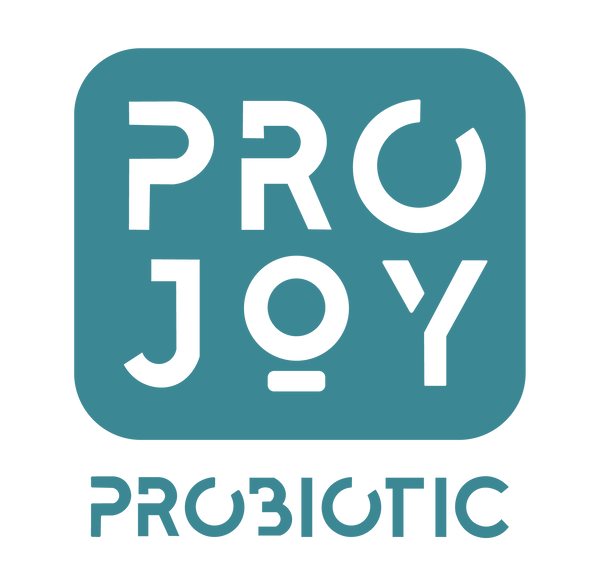Managing PCOS and PCOD with Probiotics: How Gut Health Affects Hormones
Share
Polycystic Ovary Syndrome (PCOS) and Polycystic Ovarian Disease (PCOD) are hormonal disorders that affect millions of women worldwide. Both conditions are associated with symptoms like irregular periods, weight gain, acne, and infertility. Recent research has shown that gut health plays a significant role in managing PCOS and PCOD, as an imbalanced gut microbiome can contribute to hormone imbalances that worsen symptoms. Probiotics—beneficial bacteria that support gut health—can help regulate hormones and improve the overall management of these conditions.
In this post, we’ll explore the connection between gut health, PCOS, and PCOD, and how probiotics can play a role in managing symptoms.
H2: The Gut-Hormone Connection in PCOS and PCOD
The gut microbiome plays an important role in regulating hormones, including those involved in PCOS and PCOD. Here’s how gut health and hormonal balance are interconnected:
1. Estrogen Metabolism
The gut helps regulate estrogen levels in the body. A healthy gut microbiome ensures that excess estrogen is broken down and eliminated. In women with PCOS and PCOD, estrogen dominance (too much estrogen relative to progesterone) can exacerbate symptoms like irregular periods, weight gain, and mood swings. By maintaining a balanced gut, probiotics help regulate estrogen levels and improve hormone balance.
2. Insulin Resistance
Many women with PCOS and PCOD experience insulin resistance, which means their bodies struggle to use insulin effectively. This can lead to high blood sugar levels and weight gain. Gut bacteria play a key role in regulating blood sugar and insulin sensitivity. Probiotics help improve gut health, which can support better insulin sensitivity and reduce the impact of insulin resistance on symptoms.
3. Inflammation and Androgens
Chronic inflammation is common in women with PCOS and PCOD and can trigger the overproduction of androgens (male hormones), leading to acne, excess hair growth, and other symptoms. Probiotics help reduce gut inflammation, which in turn lowers androgen levels and helps manage these symptoms.
H2: Common PCOS and PCOD Symptoms Linked to Gut Imbalance
Many symptoms of PCOS and PCOD can be linked to poor gut health. Here’s how an imbalanced gut can worsen the common symptoms of both conditions:
1. Irregular Periods
Gut health plays a role in hormone regulation, including the balance of estrogen and progesterone. When the gut microbiome is imbalanced, it can disrupt this hormonal balance, leading to irregular periods. Probiotics can help restore gut balance and regulate menstrual cycles.
2. Weight Gain
Weight gain is a common symptom of PCOS and PCOD, often due to insulin resistance and hormone imbalances. Probiotics help improve digestion and metabolism, which can support weight management. They also promote better nutrient absorption and reduce inflammation, making it easier to maintain a healthy weight.
3. Acne and Skin Issues
Androgens, or male hormones, are often elevated in women with PCOS and PCOD, leading to acne and oily skin. Probiotics help reduce androgen production by lowering inflammation in the gut. A balanced gut can improve skin health by reducing the hormonal fluctuations that trigger acne.
H2: How Probiotics Help Manage PCOS and PCOD
Probiotics work by restoring balance to the gut microbiome, which supports hormonal regulation and helps manage PCOS and PCOD symptoms. Here’s how they can help:
1. Improving Insulin Sensitivity
Probiotics, particularly strains like Lactobacillus and Bifidobacterium, have been shown to improve insulin sensitivity. By regulating gut bacteria, probiotics help control blood sugar levels, which reduces the impact of insulin resistance—a key factor in managing PCOS and PCOD.
2. Regulating Hormones
A healthy gut microbiome supports hormone metabolism, helping break down and eliminate excess estrogen. Probiotics help regulate the balance of estrogen and progesterone, reducing symptoms like irregular periods and mood swings. This hormone regulation is crucial for managing both conditions.
3. Reducing Inflammation
Chronic inflammation in the gut can worsen PCOS and PCOD symptoms, particularly by triggering the overproduction of androgens. Probiotics reduce inflammation in the gut, which in turn lowers androgen levels and helps manage symptoms like acne, excess hair growth, and hormonal imbalances.
H2: Natural Tips to Support Gut Health and Manage PCOS and PCOD
In addition to taking probiotics, adopting a gut-friendly lifestyle can help manage PCOS and PCOD symptoms. Here are some tips to improve gut health and support hormone balance:
1. Eat a Fiber-Rich Diet
Fiber is essential for gut health, as it feeds beneficial bacteria and promotes regular bowel movements. A diet rich in vegetables, fruits, whole grains, and legumes supports gut health and hormone balance, which can help manage PCOS and PCOD symptoms.
2. Limit Processed Foods and Sugars
Processed foods and added sugars can disrupt the gut microbiome, leading to inflammation and hormone imbalances. Reducing these foods in your diet can help restore gut health and improve the effectiveness of probiotics in managing these conditions.
3. Stay Hydrated
Drinking enough water is essential for digestion and nutrient absorption. Staying hydrated supports gut health and helps your body eliminate toxins, which can reduce inflammation and support hormone regulation.
4. Exercise Regularly
Physical activity helps improve insulin sensitivity, reduces inflammation, and supports hormonal balance. Regular exercise, combined with a gut-healthy diet and probiotics, can help manage PCOS and PCOD symptoms more effectively.
Conclusion
PCOS and PCOD are complex hormonal disorders, but research shows that gut health plays a critical role in managing their symptoms. By maintaining a healthy gut microbiome with the help of probiotics, you can support hormone regulation, improve insulin sensitivity, and reduce inflammation—all of which are essential for managing these conditions. Incorporating probiotics into your routine, along with a gut-friendly diet and lifestyle, is a natural and effective way to improve your overall well-being and manage the symptoms of PCOS and PCOD.
